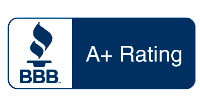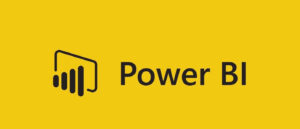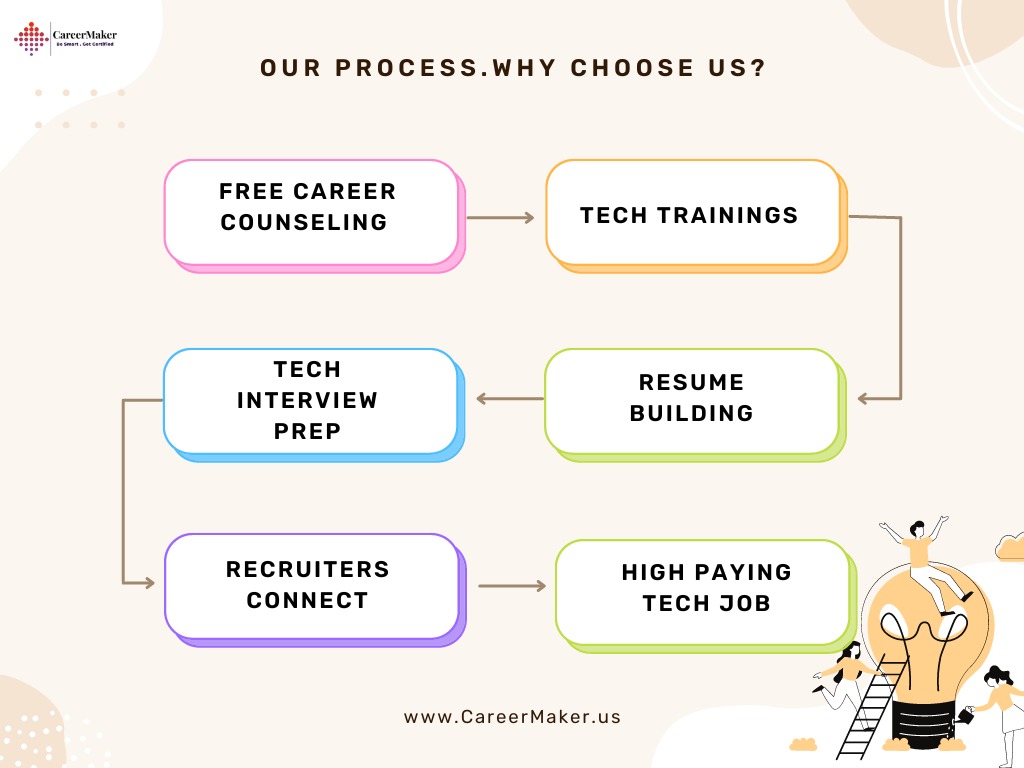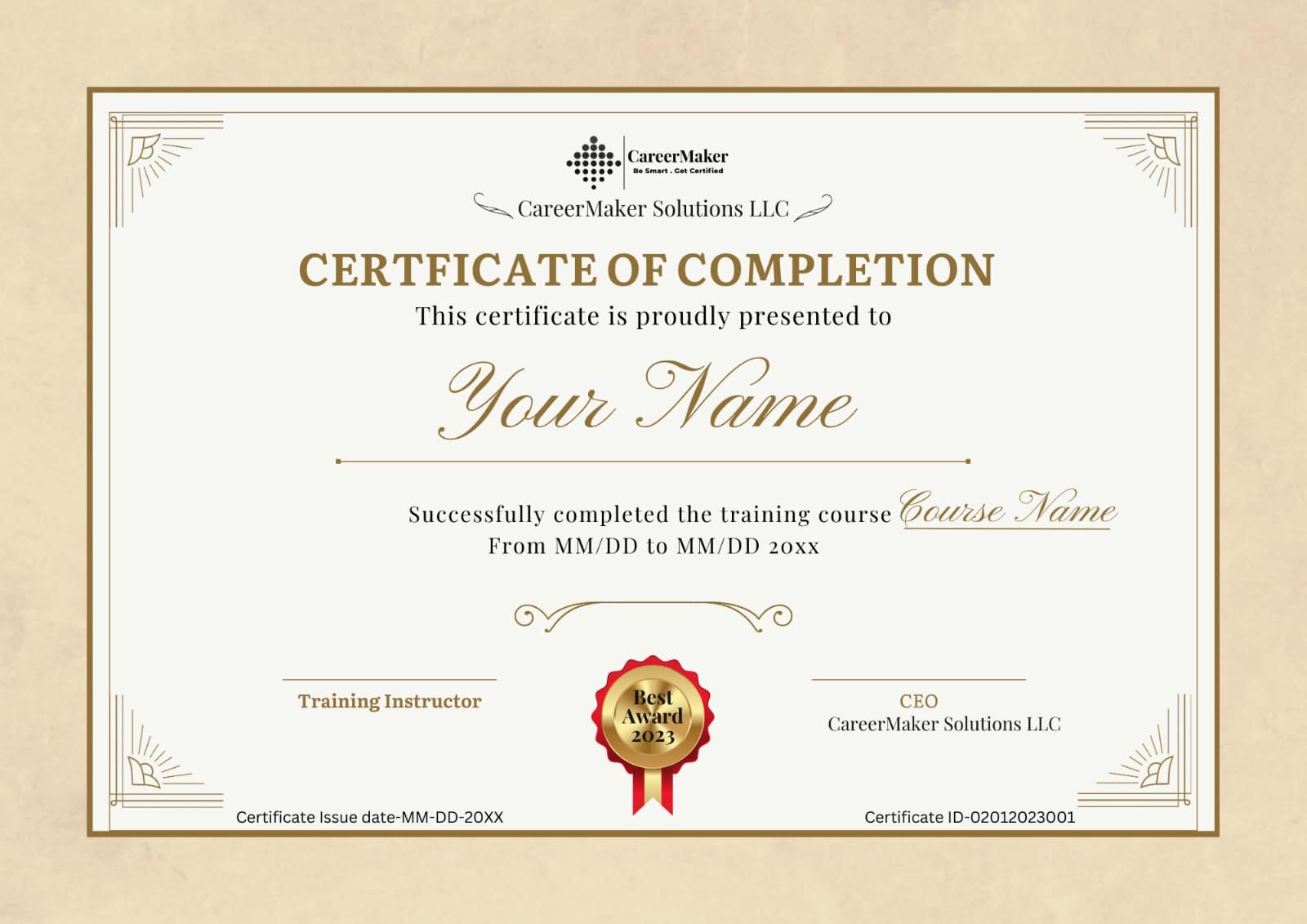Become a Certified Data Analyst with Our Comprehensive Course
Are you passionate about data and looking to take your career to the next level? At CareerMaker, we offer a top-notch Data Analyst course designed to help you build a solid foundation in data analysis and enhance your professional prospects. Our comprehensive training program equips you with the knowledge and skills needed to excel in today’s rapidly evolving data landscape.
The Data Analyst course is recognized for its practical and industry-relevant curriculum, making it ideal for those looking to start or advance their career in data analytics. This certification validates your proficiency in essential data analysis tools and techniques, empowering you to make data-driven decisions.
Years in IT training industry
IT professional Trained
Countries
Bootcamps
- TRUSTED BY -










- Data Analyst COURSE HIGHLIGHTS -

- Online Live 150-Hour Training
- Certified Trainers with 10+ Years of Experience
- Guarantee of complete refund on dissatisfaction
- Mode of Training: Live Online via Zoom
- Dedicated Account Manager Available 24/7
- Batch Format: Monday to Friday, Evening Sessions
- Session Timing: 08:00 PM - 10:00 PM (EST)
- Upcoming Live BOOTCAMP CALENDAR -
Class Schedule
| 08:00 AM-10:00 AM(EST) | Weekend Evening | October 21 2024 - March 28 2025 | Live Online | $1500 STUDY NOW PAY LATER | INQUIRY NOW |
| 05:00 PM-08:00 PM(CST) | Weekend Evening | October 26 2024 - November 24 2024 | Live Online | $1500 STUDY NOW PAY LATER | INQUIRY NOW |
| 10:00 AM to 06:00PM(CST) | Weekdays | October 07 2024- November 02 2024 | Live Online | $1500 STUDY NOW PAY LATER | INQUIRY NOW |
October 21 2024 To March 28 2025
October 26 2024 To November 24 2024
October 07 2024 To November 02 2024
-Data Analyst Course Description -
Our Data Analyst course provides a comprehensive foundation in data analysis, equipping learners with the skills needed to interpret and visualize data. The curriculum covers essential tools such as Python, MySQL, Excel, Tableau, and Power BI, preparing students for success in the data-driven industry.
Our Data Analyst course is designed for a diverse audience, including:
- Beginners looking to enter the field of data analysis.
- Professionals seeking to enhance their data interpretation and visualization skills.
- Students aspiring to pursue careers in data science, business analytics, or related fields.
- Career changers who want to transition into data analysis from other industries.
While there are no formal prerequisites for our Data Analyst course, a basic understanding of statistics and familiarity with computers will be beneficial. We recommend that students have:
- Basic knowledge of Excel for data manipulation.
- Familiarity with programming concepts (helpful but not mandatory for learning Python).
- A desire to learn and a passion for working with data.
Our Data Analyst course covers a wide range of topics essential for developing strong data analysis skills, including:
- Data Fundamentals: Understanding types of data, data collection methods, and data quality.
- Data Cleaning and Preparation: Techniques for cleaning and preparing data for analysis.
- Statistical Analysis: Basic statistical concepts, including descriptive and inferential statistics.
- Database Management: Introduction to databases and SQL for data retrieval and manipulation.
- Data Visualization: Using tools like Tableau and Power BI to create interactive visualizations.
- Data Analysis with Python: Utilizing Python libraries (Pandas, NumPy, Matplotlib) for data analysis and visualization.
- Business Intelligence: Analyzing data to support decision-making and strategic planning.
- Final Capstone Project: Applying learned skills to a real-world data analysis project.
To maintain your Data Analyst certification, we recommend engaging in continuous learning and professional development. While there are no formal renewal requirements, you can stay current in the field by:
- Taking Advanced Courses: Enroll in additional data analysis or related courses to deepen your expertise.
- Participating in Workshops and Webinars: Attend industry workshops and webinars to learn about the latest trends and tools in data analysis.
- Gaining Practical Experience: Work on real-world data projects or contribute to open-source data initiatives to enhance your skills.
- Obtaining New Certifications: Consider pursuing additional certifications in related fields, such as data science or business intelligence, to further validate your skills and knowledge.
-Data Analyst Certification Syllabus -
- Python for Data Analysis
- MySQL for Data Management :-
- Data Visualization with Power BI:
- Excel for Advanced Data Processing
- Tableau for Visual Analytics:
 Learn to manipulate and analyze data using Python’s powerful libraries such as Pandas, NumPy, and Matplotlib.
Learn to manipulate and analyze data using Python’s powerful libraries such as Pandas, NumPy, and Matplotlib.
 Master SQL for querying, managing, and extracting data from databases.
Master SQL for querying, managing, and extracting data from databases.
 Create interactive visual reports and dashboards using Power BI to present data insights effectively.
Create interactive visual reports and dashboards using Power BI to present data insights effectively.
 Develop advanced Excel skills for data cleaning, analysis, and visualization.
Develop advanced Excel skills for data cleaning, analysis, and visualization.
 Build compelling visualizations and dashboards using Tableau to make data-driven decisions.
Build compelling visualizations and dashboards using Tableau to make data-driven decisions.
Why Choose Our Data Analyst Course?
- Industry-Relevant Curriculum: Learn Python, MySQL, Power BI, Excel, and Tableau, widely used by data professionals across various industries.
- Hands-on Experience: Practical exercises and real-world projects ensure you gain the skills required to analyze and interpret data effectively.
- Personalized Instruction: One-on-one sessions with experienced trainers ensure you receive personalized guidance throughout the course.
- Flexible Scheduling: Classes are designed to fit your schedule with evening sessions available.
Course Highlights - Flexible Scheduling: Classes are tailored to your availability, with live online sessions scheduled during evenings.
- Personalized Instruction: Get one-on-one mentorship from experienced trainers throughout the course.
- Hands-on Learning: Engage in practical exercises and work on real-world data projects to build your portfolio.
- Live Bootcamp: Participate in our upcoming Data Analyst Live Bootcamp for an immersive learning experience.
Career Opportunities
After completing our Data Analyst Course, you’ll be ready to apply for positions such as:
- Data Analyst
- Business Analyst
- Operations Analyst
- Research Analyst
- Data Scientist (with additional training)
Why Data Analysis?
The demand for skilled data analysts continues to grow as companies across all industries rely on data-driven decision-making. By mastering essential tools like Python, MySQL, Power BI, Excel, and Tableau, you’ll be equipped to meet this demand and excel in your career.
Course Modules
- Module 1: Introduction to Data Analytics
- Module 2: Data Collection & Cleaning Techniques
- Module 3: Advanced Excel for Data Analysis
- Module 4: Data Visualization using Tableau & Power BI
- Module 5: Programming with Python for Data Analysis
- Module 6: SQL for Data Management with MySQL
- Module 7: Final Capstone Project
-Data Analyst Certification Jobs & Salary -

Yes, Data Analyst jobs are in high demand. As organizations increasingly rely on data-driven decision-making, the need for skilled data analysts continues to grow across various industries. Companies are seeking professionals who can interpret complex data, create insightful visualizations, and provide actionable recommendations. This trend is expected to persist, making data analysis a promising career path with ample job opportunities.
To start a career in Data Analysis, follow these steps:
Learn the Fundamentals: Begin with a solid understanding of data analysis concepts, including statistics, data visualization, and data management.
Enroll in a Data Analyst Course: Consider taking a comprehensive Data Analyst course to gain hands-on experience with tools like Python, MySQL, Excel, Tableau, and Power BI.
Build Your Skills: Practice your skills by working on real-world projects or datasets. Online platforms often offer datasets for practice.
Create a Portfolio: Showcase your work through a portfolio that highlights your projects, visualizations, and analyses.
Gain Experience: Look for internships or entry-level positions in data analysis to gain practical experience and industry exposure.
Network: Connect with professionals in the field through networking events, online forums, and social media platforms like LinkedIn.
Stay Updated: Keep learning and stay current with industry trends, tools, and techniques through continuous education and professional development.
Many organizations across various industries actively seek skilled data analysts. Some of the top organizations hiring data analysts include:
- Google: Known for its data-driven decision-making, Google often hires data analysts to optimize services and enhance user experience.
- Amazon: The e-commerce giant employs data analysts to analyze consumer behavior and improve logistics and marketing strategies.
- Microsoft: Data analysts at Microsoft help analyze software usage and customer feedback to enhance product development.
- IBM: As a leader in technology and analytics, IBM frequently hires data analysts for various projects, from AI to business intelligence.
- Deloitte: The consulting firm relies on data analysts to provide insights and strategies for their clients across multiple industries.
- Accenture: Accenture hires data analysts to help businesses leverage data for operational efficiency and strategic growth.
- Facebook (Meta): Data analysts at Facebook analyze user data to improve engagement and advertising strategies.
- Wells Fargo: In the finance sector, data analysts play a crucial role in risk management and financial analysis.
- UnitedHealth Group: Healthcare organizations like UnitedHealth Group employ data analysts to improve patient care and operational efficiency.
- Salesforce: As a leader in CRM solutions, Salesforce hires data analysts to enhance customer experiences and improve product offerings.
The average salary for Data Analysts can vary based on factors such as location, industry, experience, and education. As of 2024, the average salary for entry-level data analysts typically ranges from $60,000 to $80,000 per year in the United States.
With a few years of experience, data analysts can earn between $80,000 and $100,000, while more experienced data analysts or those in specialized roles may command salaries exceeding $100,000.
Overall, the demand for skilled data analysts and the importance of data-driven decision-making contribute to competitive salaries in this field.
Yes, you can transition to a career in Data Analysis from a different background. Many professionals from various fields, such as finance, marketing, and IT, successfully make this switch. Key steps to facilitate the transition include:
Acquire Relevant Skills: Learn essential data analysis skills, including statistical analysis, data visualization, and database management. Online courses and certifications can help you gain these skills.
Leverage Transferable Skills: Identify and highlight transferable skills from your previous experience, such as problem-solving, analytical thinking, and project management.
Build a Portfolio: Work on personal or freelance projects to create a portfolio that showcases your data analysis abilities. This can demonstrate your proficiency to potential employers.
Network with Professionals: Connect with data analysts and join industry groups to gain insights and advice on breaking into the field.
Stay Committed to Learning: Continuous learning and staying updated with industry trends and tools are essential for success in data analysis.

Book A Free Demo Class
- Benefits Of Choosing CareerMaker Solutions ? -

- Our World-Class CERTIFIED INSTRUCTIOR
- Certification Of Course Completion -

- Success Stories -
ARE YOU READY TO TAKE YOUR DATA ANALYST CAREER TO THE NEXT LEVEL -
Don’t miss out on the opportunity to advance your career in data analysis with our comprehensive Data Analyst Certification training. Join us today to gain the skills and knowledge needed to analyze and interpret data effectively, enabling organizations to make informed decisions based on insights.
Call us today to learn more about our training program, course schedules, and enrollment options. Start your journey towards a successful career in data analysis today!

- FAQ -
While there are no formal prerequisites for our Data Analyst Certification, having the following will be beneficial:
Basic Knowledge of Statistics: Understanding fundamental statistical concepts will help you grasp data analysis techniques more effectively.
Familiarity with Excel: Experience with Excel is advantageous, as it is commonly used for data manipulation and analysis.
Basic Understanding of Programming Concepts: Familiarity with programming will aid in learning Python, a key tool in data analysis.
Desire to Learn: A passion for working with data and a willingness to engage in continuous learning are essential for success in this field.
Yes, after achieving your Data Analyst Certification, you can pursue higher-level certifications to further enhance your skills and career prospects. Consider the following options:
Data Science Certifications: Certifications in data science can help you deepen your knowledge in advanced analytics, machine learning, and big data technologies.
Business Intelligence Certifications: These focus on tools and techniques for data visualization and reporting, helping you become proficient in business analytics.
Advanced SQL Certifications: Pursuing advanced SQL certifications will enhance your database management and query optimization skills.
Cloud Data Certifications: Certifications from cloud providers like AWS or Azure can provide expertise in cloud-based data solutions and services.
Project Management Certifications: If you're interested in leading data projects, consider certifications like PMP or Agile methodologies to enhance your project management skills.
Our Data Analyst training encompasses a comprehensive range of topics essential for developing robust data analysis skills, including:
- Data Fundamentals: Understanding data types, sources, and collection methods.
- Data Cleaning and Preparation: Techniques for cleaning and transforming data for analysis.
- Statistical Analysis: Basic statistical concepts, including descriptive and inferential statistics.
- Database Management: Introduction to databases and SQL for data retrieval and manipulation.
- Data Visualization: Utilizing tools like Tableau and Power BI to create compelling visual representations of data.
- Programming for Data Analysis: Leveraging Python and its libraries (Pandas, NumPy, Matplotlib) for data manipulation and analysis.
- Business Intelligence: Analyzing data to support decision-making and strategic planning.
- Final Capstone Project: Applying learned skills to a real-world data analysis project, allowing students to showcase their expertise.
The Data Analyst Certification does not have a formal renewal requirement; however, it is essential to engage in continuous learning to stay updated in the rapidly evolving field of data analysis. We recommend the following:
Ongoing Education: Regularly take courses or attend workshops to learn about new tools, techniques, and best practices in data analysis.
Stay Current with Industry Trends: Follow industry news and trends to keep your skills relevant and aligned with the demands of the job market.
Seek Additional Certifications: Consider pursuing advanced certifications in specialized areas of data analysis, data science, or related fields to enhance your qualifications.
Investing in Data Analyst training offers numerous benefits, including:
Comprehensive Skill Development: Gain a solid foundation in essential data analysis skills, including data management, statistical analysis, and data visualization.
Hands-On Experience: Participate in practical labs and real-world projects that reinforce your learning and prepare you for actual data analysis challenges.
Industry-Recognized Certification: Achieving certification enhances your credibility and demonstrates your proficiency in data analysis to potential employers.
Career Advancement Opportunities: With a recognized certification and practical skills, you can pursue a variety of job opportunities in data analysis, business intelligence, and related fields.
Networking Opportunities: Engage with instructors and peers, building a network that can provide support, mentorship, and job opportunities in the industry.
Stay Current with Tools and Techniques: Training keeps you updated with the latest tools and best practices in data analysis, ensuring your skills remain relevant in a rapidly changing field.
Improved Problem-Solving Skills: Develop critical thinking and analytical skills that enable you to interpret data effectively and make informed decisions.
While there are no strict prerequisites for our Data Analyst training, having the following can enhance your learning experience:
Basic Knowledge of Statistics: Understanding fundamental statistical concepts will help you grasp data analysis techniques more effectively.
Familiarity with Excel: Experience with Excel is advantageous, as it is commonly used for data manipulation and analysis.
Basic Understanding of Programming Concepts: Familiarity with programming will aid in learning Python, which is a key tool in data analysis.
Desire to Learn: A passion for working with data and a willingness to engage in continuous learning are essential for success in this field.
The difficulty of the Data Analyst Certification exam can vary based on your background and preparation. Here are some factors to consider:
Prior Knowledge: If you have a solid foundation in data analysis concepts, statistics, and relevant tools, you may find the exam more manageable.
Preparation: Engaging in thorough study and practical experience through hands-on projects and labs can significantly enhance your confidence and readiness for the exam.
Exam Format: The exam may include various question types, including multiple-choice and scenario-based questions. Familiarizing yourself with the exam format can help you feel more comfortable on test day.
Learning Resources: Utilizing high-quality study materials, courses, and practice exams can improve your understanding of the topics and boost your chances of success.
Yes, the Data Analyst Certification is recognized globally. As data analysis becomes increasingly critical across various industries, certifications that demonstrate proficiency in data analysis skills and tools are valued by employers worldwide. Earning this certification can enhance your credibility and open up job opportunities in diverse markets, making it a beneficial credential for those seeking a career in data analysis.

